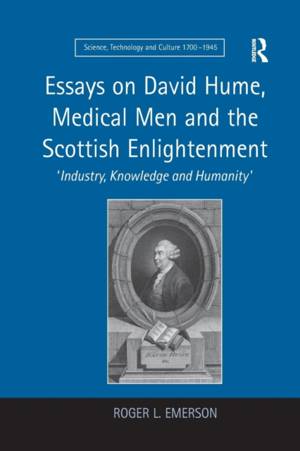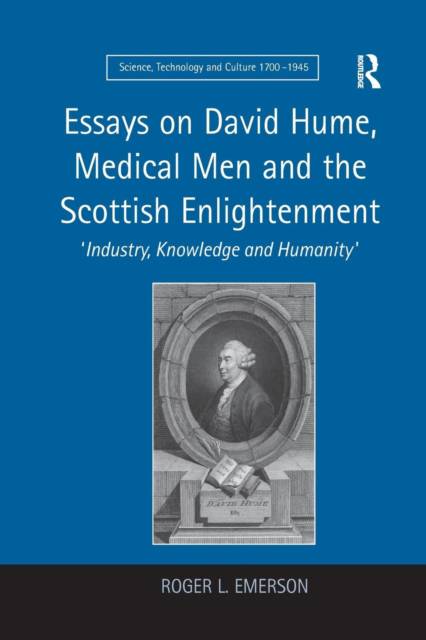
- Afhalen na 1 uur in een winkel met voorraad
- Gratis thuislevering in België vanaf € 30
- Ruim aanbod met 7 miljoen producten
- Afhalen na 1 uur in een winkel met voorraad
- Gratis thuislevering in België vanaf € 30
- Ruim aanbod met 7 miljoen producten
Zoeken
Essays on David Hume, Medical Men and the Scottish Enlightenment
'Industry, Knowledge and Humanity'
Roger L Emerson
€ 102,45
+ 204 punten
Uitvoering
Omschrijving
The Scottish Enlightenment was a period of intellectual and scientific progress, in a country previously considered to be marginal to the European intellectual scene. Yet the enlightenment was not about politeness or civic humanism, but something more basic - the making of an improved society which could compete in every way in a rapidly changing world. David Hume, writing in 1752, commented that 'industry, knowledge and humanity are linked together by an indissoluble chain'. Collectively this volume of essays embraces many of the topics which Hume included under 'industry, knowledge and humanity': from the European Enlightenment and the Scots relation to it, to Scottish social history and its relation to religion, science and medicine. Overarching themes of what it meant to be enlightened in the eighteenth century are considered alongside more specific studies of notable figures of the period, such as Archibald Campbell, 3rd Duke of Argyll, and David Hume, and the training and number of Scottish medical students. Together, the volume provides an opportunity to step back and reconsider the Scottish Enlightenment in its broader context and to consider what new directions this field of study might take.
Specificaties
Betrokkenen
- Auteur(s):
- Uitgeverij:
Inhoud
- Aantal bladzijden:
- 316
- Taal:
- Engels
- Reeks:
Eigenschappen
- Productcode (EAN):
- 9781138265882
- Verschijningsdatum:
- 15/11/2016
- Uitvoering:
- Paperback
- Formaat:
- Trade paperback (VS)
- Afmetingen:
- 156 mm x 234 mm
- Gewicht:
- 444 g

Alleen bij Standaard Boekhandel
+ 204 punten op je klantenkaart van Standaard Boekhandel
Beoordelingen
We publiceren alleen reviews die voldoen aan de voorwaarden voor reviews. Bekijk onze voorwaarden voor reviews.











